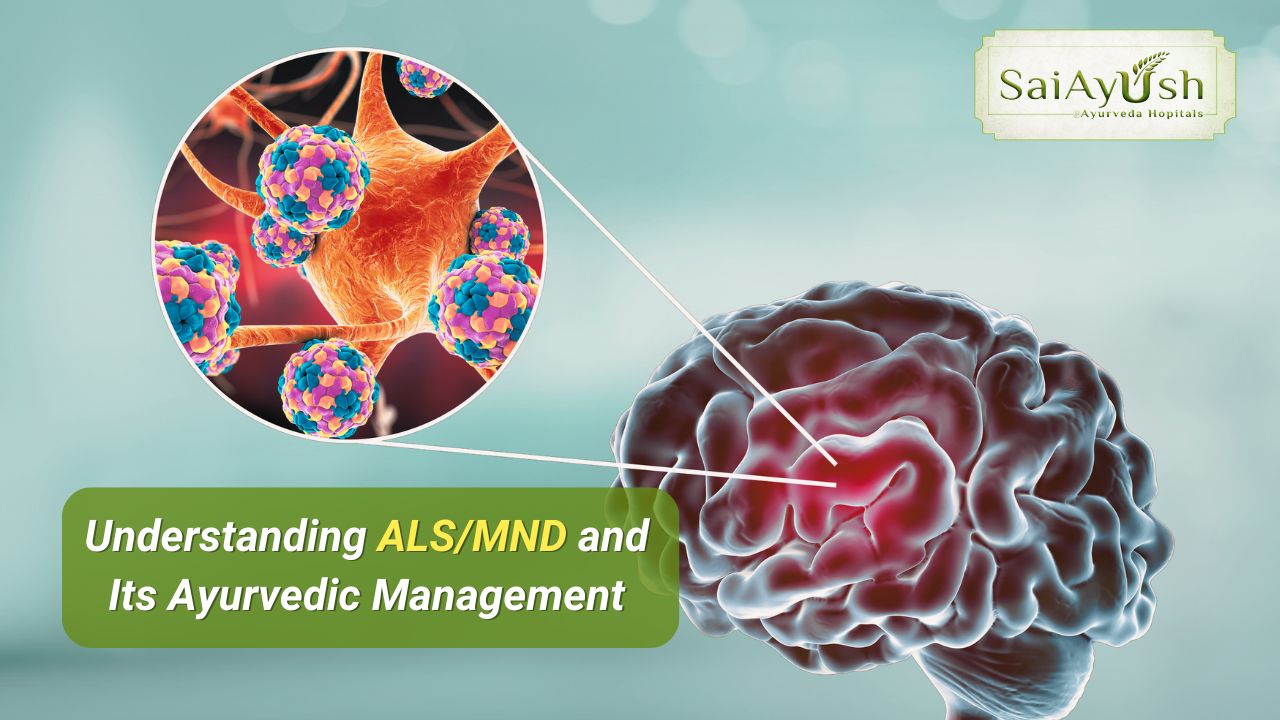A neurodegenerative disease that affects nerve cells in the brain and spinal cord is called amyotrophic lateral sclerosis (ALS) . The term “amyotrophic” comes from Greek, where “a” means no, “myo” refers to muscle, and “trophic” means nourishment – “no muscle nourishment.” When muscles receive less nourishment, they become smaller and weaker. Lateral sclerosis indicates the areas in a person’s spinal cord where affected neurons are located, showing signs of scarring or hardening (“sclerosis”).
What is ALS/MND? ALS/MND leads to the degeneration and death of motor neurons, which are essential for communicating between the brain and the voluntary muscles of the body. As these motor neurons die, the ability of the brain to initiate and control muscle movement is lost, leading to muscle weakness, speech, swallowing, and breathing difficulties.
Causes of ALS/MND The exact cause of ALS is still unknown. However, a combination of genetic and environmental factors is believed to contribute to its development. About 5-10% of cases are inherited, while the rest have no known genetic factor.
Signs and Symptoms
- Muscle weakness that frequently begins in the limbs, hands, or feet and progressively spreads to other areas of the body
- Difficulty with coordination, walking, and speaking
- Muscle cramps and twitching
Difficulty swallowing and breathing as the disease progresses
Ayurvedic Perspective on ALS/MND In Ayurveda, ALS can be correlated with diseases that involve Mamsa (muscle tissue) and Majja Dhatu (nervous system) deterioration, such as Vata Vyadhi. Ayurveda attributes the cause of such diseases to an imbalance in the Vata Dosha, the principle that governs the body’s movement and communication.
Ayurvedic Management of ALS/MND The Ayurvedic approach to managing ALS/MND focuses on restoring balance to the Vata Dosha and nourishing the Mamsa and Majja Dhatu.
Treatment modalities include: Diet and Lifestyle Adjustments: A Vata-pacifying diet, rich in warm, cooked, easily digestible foods. Regular routines and warm oil massages (Abhyanga) can also help soothe Vata. Herbal Remedies: Herbs like Ashwagandha (Withania somnifera), Bala (Sida cordifolia), and Brahmi (Bacopa monnieri) are traditionally used to nourish and strengthen the muscles and nervous system.
Abhyanga (Therapeutic Oil Massage): Abhyanga involves the application of medicated oils to the body through gentle massage which alleviates vata dosha . This therapy helps improve circulation, reduce muscle stiffness, and promote relaxation. In ALS, regular Abhyanga can ease muscle tension and enhance mobility, providing comfort to individuals experiencing muscle weakness and spasticity.
Swedana (Herbal Steam Therapy): Swedana therapy involves exposing the body to herbal steam to induce sweating and detoxification. The steam helps open up the pores, release toxins, and alleviate muscle stiffness and pain. For individuals with ALS, Swedana can be particularly beneficial in improving circulation, relieving muscle cramps, and enhancing overall relaxation.
Pinda Sweda (Herbal Bolus Massage): Pinda Sweda involves massaging the body with boluses filled with herbal powders or cooked grains soaked in medicated oils. This therapy helps alleviate muscle stiffness, reduce pain, and improve muscle strength. In ALS, Pinda Sweda can target specific areas of weakness or discomfort, providing localized relief and promoting better muscle function.
Greeva Basti (Localized Oil Pooling Therapy): Greeva Basti is a specialized treatment that involves creating a pool of warm medicated oil on the affected area, particularly the neck and cervical region. This therapy helps alleviate neck stiffness, improve nerve function, and reduce pain and inflammation. In ALS, Greeva Basti can target symptoms associated with cervical spinal involvement, such as difficulty in neck movement.
Kati Basti (Lower Back Oil Pooling Therapy): Kati Basti focuses on applying warm medicated oil to the lower back region, usually by creating a pool using a dough ring. This therapy helps alleviate lower back pain, improve flexibility, and strengthen the muscles supporting the spine. In ALS, Kati Basti can be beneficial for individuals experiencing back pain or discomfort, providing relief and promoting better posture and mobility. Panchakarma Therapy: Detoxification treatments such as Basti (medicated enema) and Nasya (nasal administration of oils) can help to balance Vata and detoxify the body.
Conclusion ALS/MND is a challenging and progressive condition, but understanding its nature and exploring all avenues of care, including Ayurveda, can provide hope and support to those affected. By focusing on the individual’s overall well-being and balancing the body’s energies, Ayurveda offers a compassionate and holistic approach to managing the symptoms of ALS/MND.
Discover the healing power of Ayurveda with our latest article at Sai Ayush Ayurveda Hospitals! Dive into the age-old wisdom that can rejuvenate your body and mind. Click here to read more:



0 Comments